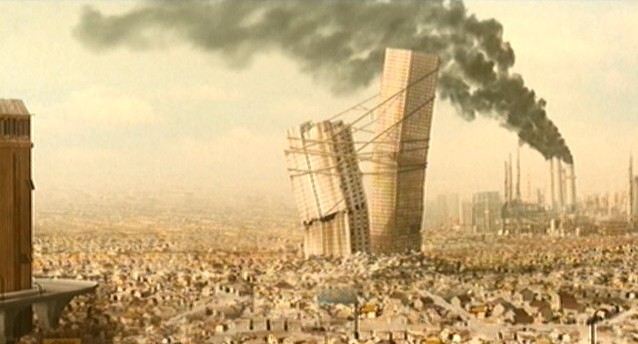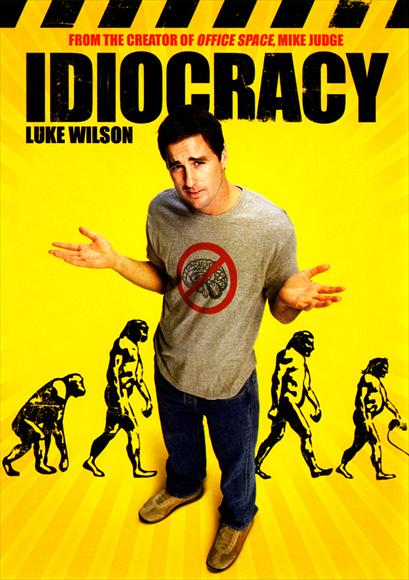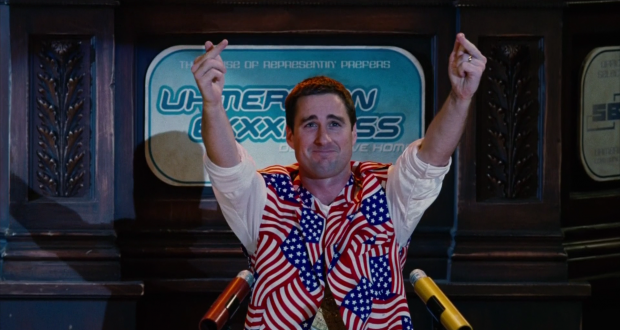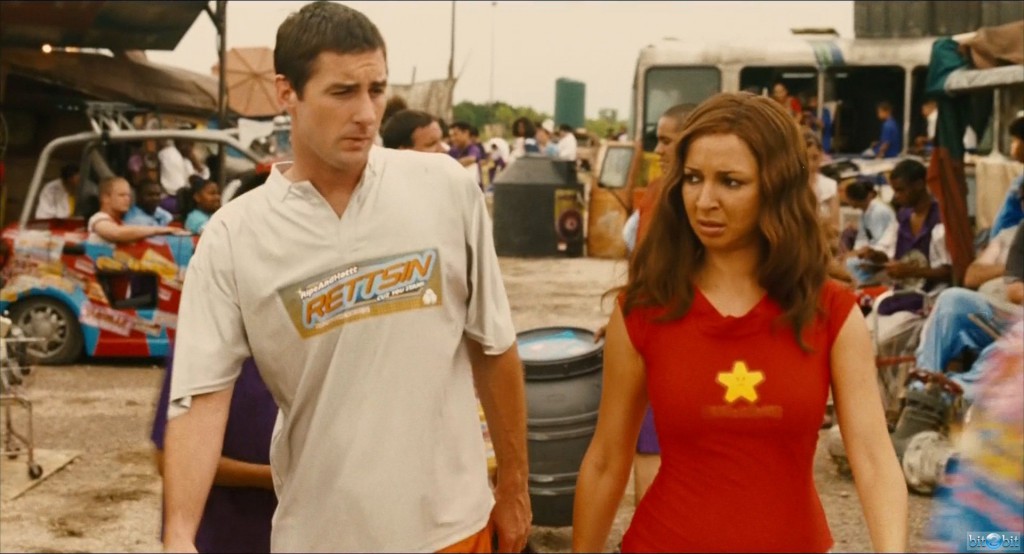It should be no surprise to anyone that our culture is rapidly drowning in lowbrow media. The perception that as a race we are being worryingly dumbed-down is not something new. Is this gradual intellectual decline something we can stop? Or is it the inevitable trajectory of our current society? One film that has managed to stay relevant seven years after release is Idiocracy, Mike Judge’s satirical take on our dumbed-down future. But for a comedy that was a little low on laughs for my liking, why has it caused such controversy and managed to stay in the public consciousness so long? And should we be worried that this film is accurately predicting our future?
The funny side of idiocy
 Idiocracy manages to have a sense of humour about the potential bleakness of our shared stupidity-induced future. Mike Judge’s 2006 comedy Idiocracy did just that, though was sadly overlooked at the time of its release. The film isn’t Judge’s best, with the comedy often falling a little flat. Idiocracy couldn’t possibly hold a torch to Judge’s Office Space (1999). The core idea behind Idiocracy is what makes it worthy of remembering: a satirical view of Earth’s future where everyone is incredibly stupid. Sounds simple enough, and not too hard to imagine (wait, there’s another reality TV show starting?!). All these years later, this small film is still causing a stir.
Idiocracy manages to have a sense of humour about the potential bleakness of our shared stupidity-induced future. Mike Judge’s 2006 comedy Idiocracy did just that, though was sadly overlooked at the time of its release. The film isn’t Judge’s best, with the comedy often falling a little flat. Idiocracy couldn’t possibly hold a torch to Judge’s Office Space (1999). The core idea behind Idiocracy is what makes it worthy of remembering: a satirical view of Earth’s future where everyone is incredibly stupid. Sounds simple enough, and not too hard to imagine (wait, there’s another reality TV show starting?!). All these years later, this small film is still causing a stir.
For those of you who aren’t familiar with this now cult film, the premise is fairly simple. Joe (Luke Wilson) is an average guy, put into stasis as part of a scientific experiment. When the experiment is cancelled, he is forgotten and left in stasis, waking up accidentally 500 years in the future. The future is a bleak one, where the average IQ of the world is worryingly low.
A misunderstood sentiment
According to Matt Novak on Gizmodo’s Paleofuture, the film is an affront for suggesting eugenics is the answer to this potentially dire future, and anyone who enjoys the film should be thoroughly ashamed of themselves.
 Does anyone else think he’s missing the point a little bit? Sorry to disagree with you Matt, but I actually always thought Judge was being satirical. I don’t believe that he ever wanted to argue for eugenics. The rich vs poor set-up is again a deliberate choice, highlighting the prejudiced views of both ends of the economical spectrum. Not, as Novak argues, a simple boiling down of the situation to ‘the intelligent people are wealthy, while the uneducated people are poor.’ I would say that cheating husbands with a dozen kids is just as stereotypical as a frigid, unpleasant, career-driven, rich couple.
Does anyone else think he’s missing the point a little bit? Sorry to disagree with you Matt, but I actually always thought Judge was being satirical. I don’t believe that he ever wanted to argue for eugenics. The rich vs poor set-up is again a deliberate choice, highlighting the prejudiced views of both ends of the economical spectrum. Not, as Novak argues, a simple boiling down of the situation to ‘the intelligent people are wealthy, while the uneducated people are poor.’ I would say that cheating husbands with a dozen kids is just as stereotypical as a frigid, unpleasant, career-driven, rich couple.
Novak claims that the film makes an unhealthy link between wealth and intelligence, but like many satirical films, it uses stereotypes to highlight the issues with that kind of thinking. In other words, Judge is using those precise stereotypes to make a point. Novak’s disgust at the stereotypes being used is entirely missing the point.
Nature vs nurture
 The real premise of the film, in my opinion, is an argument for respecting nurture over and above nature. As such, it is in direct opposition to an argument of eugenics. The ‘stupidity’ that has taken hold of the country results in a great wealth of knowledge being lost. It is not the genius scientists, but the more menial labourers and their work that is missed most. Judge’s futuristic world needs mechanics to fix their robotic helpers, bin men and janitors to clean the country, gardeners, builders, etc. Is Judge really bemoaning the loss of the highly intelligent or asking us to look back at the basic pillars that keep our society going?
The real premise of the film, in my opinion, is an argument for respecting nurture over and above nature. As such, it is in direct opposition to an argument of eugenics. The ‘stupidity’ that has taken hold of the country results in a great wealth of knowledge being lost. It is not the genius scientists, but the more menial labourers and their work that is missed most. Judge’s futuristic world needs mechanics to fix their robotic helpers, bin men and janitors to clean the country, gardeners, builders, etc. Is Judge really bemoaning the loss of the highly intelligent or asking us to look back at the basic pillars that keep our society going?
If you look at the main character’s story arc, the argument for nurture over nature is overtly apparent: you see an average man who was looked down on and not treated with much respect in his own time. When he is re-awakened in the future and found to be more intelligent, the nurturing atmosphere helps him to rise up and do more than he ever could have in the negative environment he was in before. The film is asking us to remember that everyone has potential, and that we need to be supportive of that no matter what their economic circumstances, who their families were, where they came form, etc.
While Idiocracy had a tiny limited release at the cinema back in 2006. Since then, it has found its place as a cultural yardstick for the dumbing down of society. When people bemoan the intellectual lows to which our society has sunk, referencing Idiocracy, I don’t believe that anyone is implying we should employ the use of the discredited science of eugenics. If anything, the film encourages us to always nurture potential, both intellectual and artistic.
 Pop Verse Pop Culture Universe
Pop Verse Pop Culture Universe







